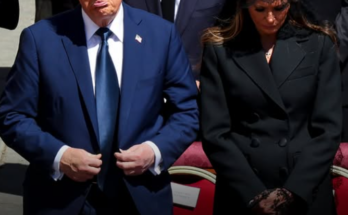Donald Trump’s relationship with Ukrainian President Volodymyr Zelensky has long been emblematic of deeper, unsettling truths about power, loyalty, and self-interest within the White House. From the infamous 2019 phone call that led to Trump’s first impeachment to his broader approach to Ukraine, his treatment of Zelensky has shown that, for Trump, foreign policy is not about strategic alliances or democratic values. Instead, it is about personal gain and transactional politics—no matter the global consequences.
The now-infamous July 25, 2019, call between Trump and Zelensky highlighted this dynamic. Instead of offering unwavering support to an ally facing Russian aggression, Trump saw an opportunity to extract political leverage. He conditioned military aid on Ukraine launching an investigation into Joe Biden and his son, Hunter. This wasn’t a mere diplomatic request; it was an explicit abuse of power—an attempt to use a war-torn country’s vulnerabilities to advance his own reelection campaign. The call made it clear that, for Trump, America’s support for Ukraine was not based on principles of democracy or sovereignty, but rather on whether its leader was willing to serve his political interests.
This transactional approach to foreign policy sent a dangerous message—not just to Ukraine but to all U.S. allies. It signaled that under Trump, alliances were not built on shared values or mutual security but were instead up for sale to the highest bidder. The U.S. had long positioned itself as a global leader standing for democracy and rule of law, but Trump’s handling of Ukraine suggested otherwise. It showed that autocratic tactics—pressure, coercion, and quid pro quo demands—were not just tools used by foreign adversaries but had found a home in the White House.
Zelensky’s predicament in dealing with Trump was particularly troubling. Ukraine, facing ongoing aggression from Russia, depended heavily on U.S. support, both militarily and diplomatically. The aid in question—nearly $400 million—was not just a bargaining chip; it was a lifeline. For Trump to withhold it as leverage for his own personal agenda demonstrated a willingness to jeopardize the security of an ally for political advantage. This episode wasn’t just an indictment of Trump’s foreign policy but an alarming reflection of the broader moral decay within his administration.
Even beyond the impeachment scandal, Trump’s broader attitude toward Ukraine has been riddled with indifference and hostility. He frequently praised Vladimir Putin and cast doubt on Ukraine’s plight, often parroting Kremlin talking points. His stance was a stark departure from the traditional bipartisan support Ukraine had enjoyed from past U.S. administrations. When Trump dismissed Ukraine’s struggle and undermined its leadership, he emboldened Russia and weakened America’s credibility as a defender of democracy.
The ugly truth revealed by Trump’s treatment of Zelensky is that under his leadership, U.S. foreign policy was dictated not by principle but by personal and political calculations. It exposed a willingness to abandon allies when their needs conflicted with Trump’s interests, and it raised uncomfortable questions about America’s role on the world stage. The repercussions of this approach are still being felt today, as Ukraine continues its fight for survival, and as America’s credibility as a reliable partner remains in question.
Would you like any edits or refinements?


